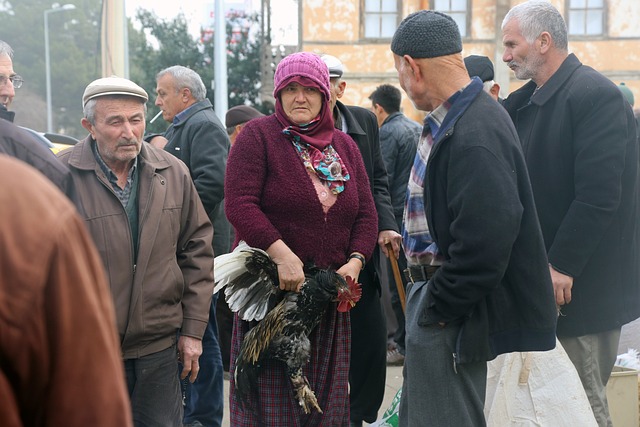Cervical Cancer Vaccine: Who Should Get It?
Cervical Cancer Vaccine: Who Should Get It?,
First off, if you’re a parent, guardian, or just concerned about young people, this is crucial: the cervical cancer vaccine is primarily recommended for preteens and teenagers. Why? Because it works best when given before individuals become sexually active. The vaccine targets the human papillomavirus (HPV), which is the leading cause of cervical cancer, and catching it early is like installing a high-tech security system before the burglars arrive.
Now, you might wonder, “Why should my teen get vaccinated?” Well, HPV is incredibly common, and it’s a major player in the development of cervical cancer. The vaccine isn’t just a precaution; it’s a powerful shield. For those already sexually active or who missed the early vaccination window, the vaccine can still offer benefits, though it’s more effective when administered before exposure to the virus.

Cervical Cancer Vaccine: Who Should Get It?, Think of the cervical cancer vaccine as a vital tool in your health arsenal. It’s like wearing a seatbelt in your car – a small step that offers big protection against potential dangers. So, if you’re wondering who should get it, the answer is clear: preteens, teens, and young adults, all aiming to stay one step ahead of cervical cancer.
Unveiling the Cervical Cancer Vaccine: Who Really Needs It?
Cervical Cancer Vaccine: Who Should Get It?, First off, the vaccine is highly recommended for preteens, both boys and girls, typically around ages 11 or 12. This is because it’s most effective when given before the onset of sexual activity, providing the ultimate shield against the HPV strains most commonly linked to cervical cancer. It’s a bit like putting up a fence before the storm hits – you’re preparing in advance for something that could be much more challenging later on.
Cervical Cancer Vaccine: Who Should Get It?, Teens and young adults up to age 26 who haven’t been vaccinated earlier can also benefit greatly from the vaccine. Even if someone is sexually active or has had HPV, the vaccine might still offer protection against strains they haven’t encountered yet. Think of it as upgrading your security system – even if your house has been broken into, a new system can still provide valuable added security.
Adults aged 27 to 45 are encouraged to discuss the vaccine with their healthcare providers. While it’s not usually recommended for this age group as a routine measure, it might still be worth considering based on individual risk factors and lifestyle. It’s like getting a personal consultation to see if an extra layer of protection fits your unique needs.
By focusing on these key groups, we can better understand who the cervical cancer vaccine is designed to protect and why it’s an essential tool in cancer prevention.
Cervical Cancer Vaccine: Essential for Young Adults or Beyond?
The cervical cancer vaccine, often referred to as the HPV vaccine, targets the human papillomavirus (HPV) that can lead to cervical cancer. It’s a game-changer because it helps prevent the infection before it even starts. For young adults, particularly those who are sexually active or plan to be, getting vaccinated can be like putting up a protective shield. It’s like wearing sunscreen to prevent sunburn – you’re taking action now to avoid future trouble.


Cervical Cancer Vaccine: Who Should Get It?, The ultimate goal here is prevention. By getting vaccinated, you’re investing in your future health and reducing your risk of cervical cancer significantly. It’s like setting up a secure financial plan for retirement – the sooner you start, the better the benefits.
Cervical Cancer Vaccine: Who Should Get It?, So whether you’re a young adult or beyond, the cervical cancer vaccine is a smart move. It’s all about safeguarding your health now and for years to come.
From Teens to Seniors: Who Should Embrace the Cervical Cancer Vaccine?

Cervical Cancer Vaccine: Who Should Get It?, But don’t tune out if you’re past your teen years. The cervical cancer vaccine is also a great option for young adults, particularly if they missed it during their teenage years. Catching up on this vaccine can still offer significant protection. For those in their 20s and 30s, it’s not too late to get vaccinated, as the benefits continue even if you’re already sexually active.
Cervical Cancer Vaccine: Who Should Get It?, And here’s where it gets interesting—seniors can also benefit from this vaccine. While it’s less common, some older adults might find themselves at risk due to new sexual partners or other factors. In these cases, discussing the vaccine with your healthcare provider can be a wise choice.
Cervical Cancer Vaccine: Who Should Get It?, In essence, the cervical cancer vaccine isn’t just a one-time opportunity for teenagers. It’s a tool that can protect people across different stages of life. Whether you’re a parent planning for your kids or an adult exploring your own health options, this vaccine deserves your attention.
The Cervical Cancer Vaccine Debate: Age, Gender, and Beyond
First off, age is a major factor. Many people believe that the vaccine is only for young girls, but that’s not entirely accurate. While it’s true that the vaccine is most effective when given before sexual activity begins—typically around ages 11 or 12—it’s also recommended for older adolescents and even adults. Think of it like catching a train: the sooner you hop on, the more you get out of the ride, but there’s still value if you board a bit later.
Gender also plays a significant role in the conversation. Initially, the vaccine was predominantly promoted for girls, but now it’s widely recognized that boys should be vaccinated too. Why? Because HPV, the virus the vaccine protects against, doesn’t discriminate by gender. Just like a fire doesn’t choose whether to burn wood or metal, HPV can affect anyone. By vaccinating boys, we not only protect them but also reduce the spread of the virus, creating a safer environment for everyone.
But let’s go beyond age and gender. There’s also the question of accessibility and equity. Not everyone has easy access to vaccinations due to geographic or financial barriers. This is where public health initiatives come into play, aiming to bridge gaps and ensure that everyone who needs the vaccine can get it.
Cervical Cancer Vaccine: Who Should Get It?, So, the cervical cancer vaccine debate isn’t just about who gets the shot and when. It’s about understanding the broader picture and making informed choices that benefit individuals and communities alike.
Navigating the Cervical Cancer Vaccine Guidelines: Who’s on the List?
Cervical Cancer Vaccine: Who Should Get It?, First off, the guidelines recommend that preteens, both boys and girls, receive the vaccine around ages 11 or 12. Think of this as the golden window when the vaccine is most effective. It’s like getting your car’s oil changed regularly to keep it running smoothly. Why preteens? Because starting early maximizes the vaccine’s benefits before individuals become sexually active, ensuring they’re protected when it matters most.
Cervical Cancer Vaccine: Who Should Get It?, For those who missed this window, don’t fret. The vaccine is also recommended for everyone up to age 26, and in some cases, even up to age 45. If you’re an adult who’s just now considering the vaccine, it’s worth discussing with your healthcare provider. They’ll help you determine if it’s right for you, given your health history and lifestyle.
Cervical Cancer Vaccine: Who Should Get It?, In terms of frequency, the vaccine is typically administered in a series of shots. For the younger crowd, it’s usually a two-dose series, while older teens and adults might need three doses. It’s like a well-planned workout routine—each dose builds on the last to ensure maximum protection.
So, whether you’re a parent planning for your child or an adult considering the vaccine for yourself, navigating these guidelines is key. Stay informed, and don’t hesitate to reach out to healthcare professionals to ensure you’re making the best choice for your health.
Frequently Asked Questions
Can Adults Benefit from the Cervical Cancer Vaccine?
Cervical Cancer Vaccine: Who Should Get It?, The cervical cancer vaccine, primarily recommended for adolescents, can still offer benefits to adults. It helps protect against HPV strains linked to cervical cancer and other related cancers. Adults, particularly those at higher risk or who haven’t been previously vaccinated, may reduce their risk by getting the vaccine.
What Age is Ideal for the Cervical Cancer Vaccine?
Cervical Cancer Vaccine: Who Should Get It?, The cervical cancer vaccine is ideally given to individuals aged 11 to 12, but it can also be administered to those up to 26 years old for maximum effectiveness. Early vaccination before sexual activity is recommended.
Are There Specific Groups Recommended for the Vaccine?
Certain groups, such as the elderly, young children, pregnant women, and individuals with chronic health conditions, are recommended to receive the vaccine due to their higher risk of severe illness. Vaccination is crucial for these groups to ensure better protection and reduce complications.
Is the Vaccine Safe for All Genders?
Vaccines are tested for safety and efficacy across all genders. They are generally safe for everyone, with any minor side effects being similar across genders.
Who Should Receive the Cervical Cancer Vaccine?
The cervical cancer vaccine is recommended for preteens, teens, and young adults, typically starting at ages 11-12, but it can be given up to age 26. It is most effective when administered before the onset of sexual activity.
Comments are closed.